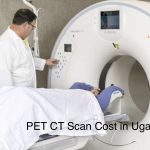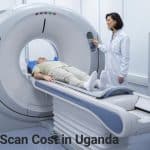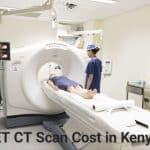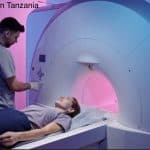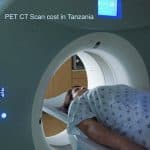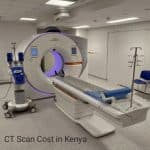| MRI Type |
Cost Range (USD) |
Cost Range (UGX) |
| Brain MRI |
$400 – $1,200 |
UGX 1,440,000 – UGX 4,320,000 |
| Spine MRI |
$500 – $1,500 |
UGX 1,800,000 – UGX 5,400,000 |
| Abdominal MRI |
$600 – $1,800 |
UGX 2,160,000 – UGX 6,480,000 |
| Pelvic MRI |
$550 – $1,600 |
UGX 1,980,000 – UGX 5,760,000 |
| Cardiac MRI |
$800 – $2,500 |
UGX 2,880,000 – UGX 9,000,000 |
| Musculoskeletal MRI |
$600 – $1,800 |
UGX 2,160,000 – UGX 6,480,000 |
| Breast MRI |
$700 – $2,000 |
UGX 2,520,000 – UGX 7,200,000 |
| Prostate MRI |
$650 – $1,900 |
UGX 2,340,000 – UGX 6,840,000 |
| Liver MRI |
$600 – $1,800 |
UGX 2,160,000 – UGX 6,480,000 |
| Renal MRI |
$550 – $1,600 |
UGX 1,980,000 – UGX 5,760,000 |
| Pancreatic MRI |
$700 – $2,000 |
UGX 2,520,000 – UGX 7,200,000 |
| Adrenal Gland MRI |
$600 – $1,800 |
UGX 2,160,000 – UGX 6,480,000 |
| Spleen MRI |
$500 – $1,500 |
UGX 1,800,000 – UGX 5,400,000 |
| Ovarian MRI |
$550 – $1,600 |
UGX 1,980,000 – UGX 5,760,000 |
| Temporal Bone MRI |
$500 – $1,500 |
UGX 1,800,000 – UGX 5,400,000 |
| Neck MRI |
$550 – $1,600 |
UGX 1,980,000 – UGX 5,760,000 |
| Joint MRI (e.g., Knee) |
$500 – $1,500 |
UGX 1,800,000 – UGX 5,400,000 |
| Soft Tissue Neck MRI |
$550 – $1,600 |
UGX 1,980,000 – UGX 5,760,000 |
| Facial Bone MRI |
$500 – $1,500 |
UGX 1,800,000 – UGX 5,400,000 |
| Limbs MRI (e.g., Arm) |
$500 – $1,500 |
UGX 1,800,000 – UGX 5,400,000 |
| Small Bowel MRI |
$600 – $1,800 |
UGX 2,160,000 – UGX 6,480,000 |
| Thoracic Outlet MRI |
$700 – $2,000 |
UGX 2,520,000 – UGX 7,200,000 |
| Coronary Artery MRI |
$800 – $2,500 |
UGX 2,880,000 – UGX 9,000,000 |
| Temporal Artery MRI |
$550 – $1,600 |
UGX 1,980,000 – UGX 5,760,000 |
| Bone Density MRI |
$500 – $1,500 |
UGX 1,800,000 – UGX 5,400,000 |
| Facial Soft Tissue MRI |
$550 – $1,600 |
UGX 1,980,000 – UGX 5,760,000 |
| Aorta MRI |
$800 – $2,500 |
UGX 2,880,000 – UGX 9,000,000 |
| Peripheral Angiography MRI |
$900 – $2,500 |
UGX 3,240,000 – UGX 9,000,000 |
| Fetal MRI |
$700 – $2,000 |
UGX 2,520,000 – UGX 7,200,000 |
| Whole-Body MRI |
$1,000 – $3,000 |
UGX 3,600,000 – UGX 10,800,000 |


